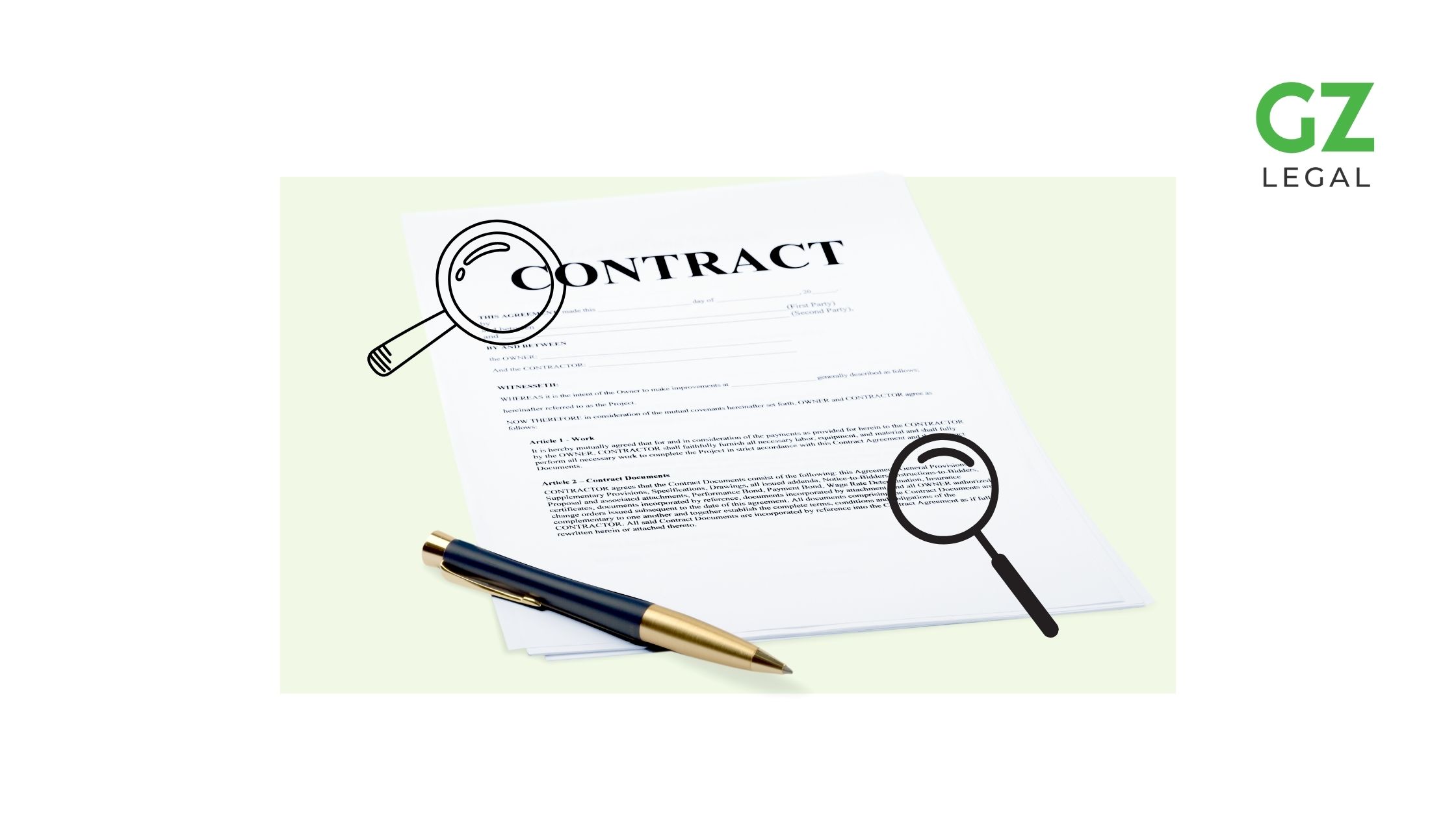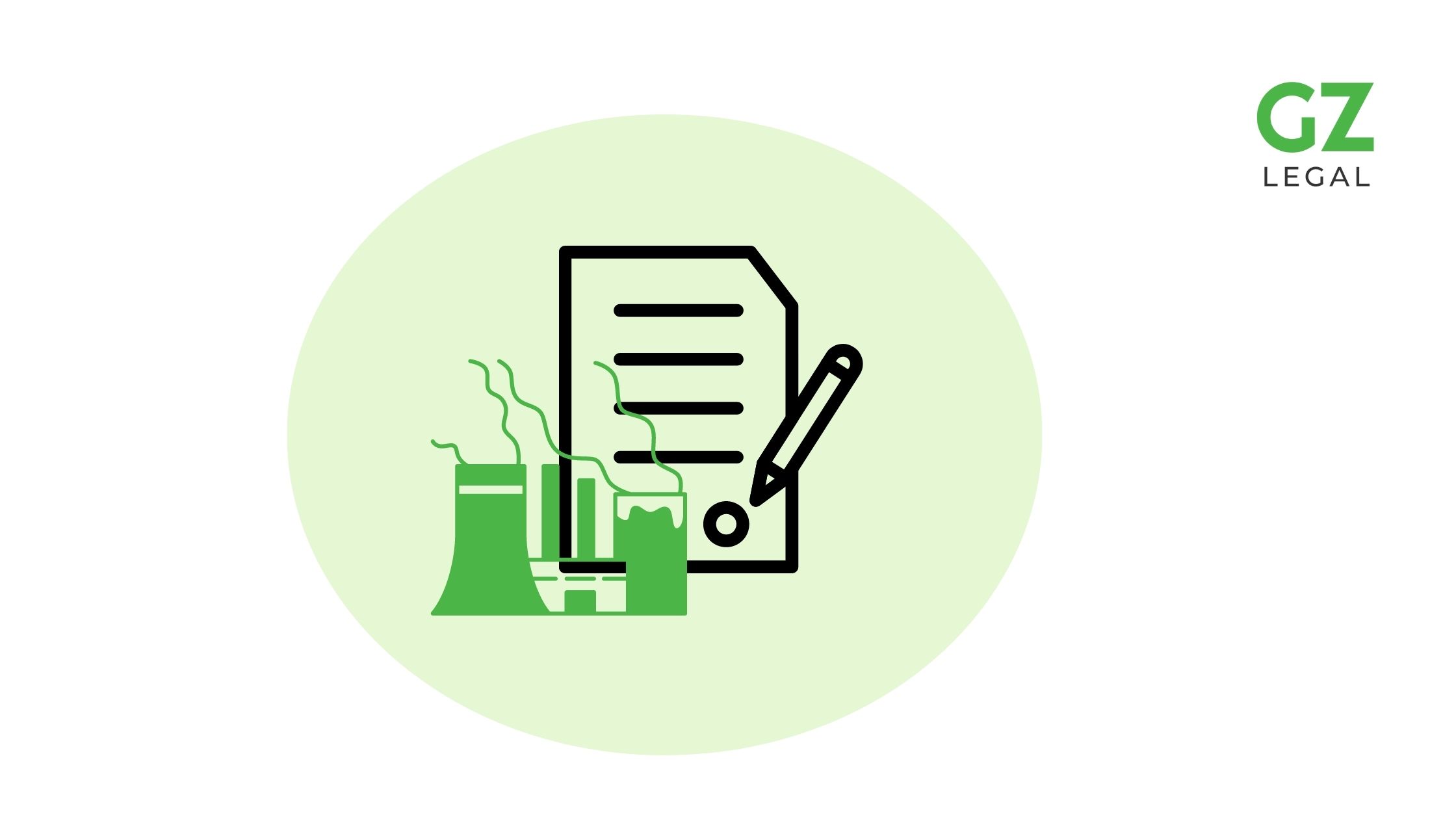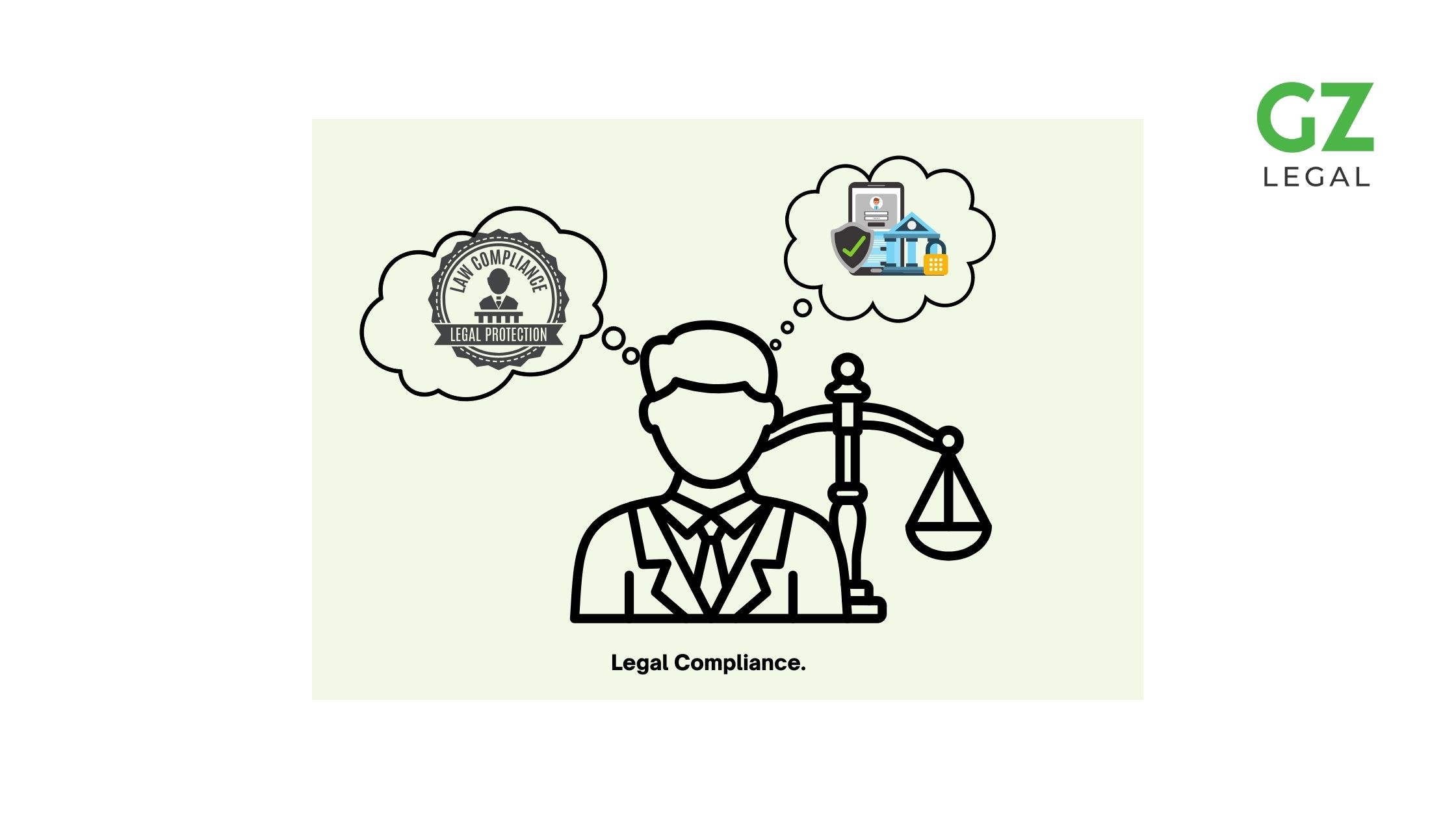Malcolm ZoppiSun Oct 15 2023
Commercial Contracts Lawyers
Commercial Lawyers & Their Role In Your Business.
Commercial lawyers are vital in securing that your business needs are protected. Most commercial solicitors would have experienced contract drafting during their training, however, there is one type of lawyer who will be the go-to for any business seeking the best professional support.
A commercial contract lawyer plays an important role in ensuring that the business acting as their client is operating within the UK law. They provide advice on a wide range of legal matters, including contract law, company law, and employment law. They also draft and negotiate contracts, and also often have the expertise to advise on compliance with regulations.
Such lawyers are often work with businesses to ensure that they are commercially focused and so in a position to understand your business needs. They have the ability to support start ups all the way to large businesses in London, illustrating the wide range of commercial contracts they can assist on and the ranges of expertise you can expect from them.
In addition, commercial contract lawyers represent businesses in court proceedings and any legal issues that may arise. They also work with a variety of commercial clients, which gives them an extensive understanding of the commercial world. With this in mind, they are able to provide comprehensive and accurate legal advice that is tailored to your business.
This article aims to discuss the role of commercial contract lawyers in drafting commercial agreements within the UK. We will look at how they help to support businesses in relation to a variety of needs. Key points of discussion will include:
1) Introducing the role of commercial contract lawyers in the UK
2) The different types of contracts that commercial contract lawyers can assist with
3) Key clauses of importance
4) How commercial contract lawyers help businesses to stay compliant with the law
5) The pandemic and why good contracts are vital
What is a commercial contracts solicitor?

As mentioned, a commercial contracts solicitor plays an important role in ensuring that their client operates within the law in the United Kingdom.
A business may outsource such a lawyer from a law firm, or they may have in-house legal counsel who assists them in both their national and international needs. Irrespective of what type they are, they are still key in ensuring that any contracts created in the course of business address all the commercial and legal needs.
Such individuals have knowledge of the fine details of contracts. They are able to provide advice and guidance on a broad range of legal topics to their clients, helping them to avoid any potential pitfalls that could lead to problems further down the line.
Most businesses will require assistance with contracts at some point or another, whether they are drafting a new contract, negotiating the terms of an existing contract, or trying to resolve a dispute that has arisen from a breach of contract. Commercial contract lawyers can provide expert advice on all of these matters, ensuring that businesses are protected legally.
Another key area in which commercial contract lawyers can assist businesses is compliance with regulations. There are a huge number of laws and regulations in the UK that businesses must comply with, and failure to do so can result in hefty fines or even imprisonment.
A commercial contract lawyer can help businesses to understand their legal obligations and ensure that they are complying with the relevant laws.
Finally, commercial contract lawyers also represent businesses in court proceedings in the case that dispute resolution has been unsuccessful. If a business is involved in litigation or is facing an investigation by a regulatory body, a commercial contract lawyer can provide expert legal advice and represent the business in court.
If a business is involved in litigation or is facing an investigation by a regulatory body, a commercial contract lawyer can provide expert legal advice and represent the business in court.
The range of commercial contracts they may work on
Commercial agreements are made in relation to variety of different sectors. Contract solicitors are usually capable of advising on most kinds of contracts, regardless of their own distinct objectives and set of demands. Therefore it is vital that they have the knowledge required to pick at the finer details. Oftentimes, commercial contract lawyers work with businesses across a range of sectors, including but not limited to:
- technology
- manufacturing
- pharmaceuticals
- healthcare
- retail
- hospitality
- transportation
- media and entertainment business services
A contracts solicitor working in private practice would have extensive knowledge of the various business needs for companies across multiple sectors. However, some contract lawyers prefer to focus their attention on a particular sector or industry, in order to gain specialist knowledge. This inherently means that their advice is only applicable to specific business settings and agreements.
Even in that case there will be a range of commercial issues that such a solicitor will need to be aware of. Nevertheless, this can be advantageous for businesses as it means that they can receive more tailored and accurate advice rather than advice which can apply to multiple different sectors.
Listed below are several vastly different types of contracts you could expect a contracts solicitor, or in-house legal counsel, to draft for their client or company.
Employment
Employment contracts are perhaps the most important type of contract that commercial contract solicitors work on. These contracts govern the relationship between an employer and an employee, and sets out the rights and obligations of each party. Depending on the size of the team involved, and the number of employees, this form of contract can usually be standardised.
Without employees, none of the other contracts would be possible in practice as employees form the backbone behind most business functions.
Supply

Supply contracts are another type of contract that commercial contract lawyers often work on. These contracts govern the relationship between a supplier and a customer and set out the terms under which goods or services will be supplied.
Depending on the length of the supply chain, contracts in this area can be very complex. Supply contracts are oftentimes very reliant on timelines.
Therefore, it is important that any supply contract is drafted specific market in mind and with a realistic timeframe for the service to be performed to the standard the business want. The latter is especially vital considering a global context.
Distribution
Distribution contracts are another type of contract that commercial contract lawyers often work on. These contracts govern the relationship between a distributor and a supplier and set out the terms under which goods or services will be distributed to the consumer.
Distribution contracts can be complex due to their potential global nature. Given the potential international law involved, such commercial agreements often require commercial lawyers at international law firms in order to ensure that the business is compliant on a global level.
Service
Service contracts are another type of contract that commercial contract lawyers often work on. These contracts govern the relationship between a service provider and a customer and set out the terms under which services will be provided. Service contracts can be very complex, and the solicitors drafting them must take into account the specific needs of the parties involved.
Manufacturing
Manufacturing contracts are another type of contract that commercial contract lawyers often work on. These contracts govern the relationship between a manufacturer and a customer and set out the terms under which goods will be manufactured.
Drafting terms relating to the manufacturing of a product correctly is vital in ensuring that issues with the supply and distribution stage are mitigated. If issues do arise the business may face consequences extending to the consumer stage with delays in product launches or potential shortages.
Outsourcing
Outsourcing contracts are another type of contract that commercial contract solicitors often work on. These contracts govern the relationship between a company and an outsourcing provider, and set out the terms under which services will be outsourced.
Outsourcing is where a company employs another company to carry out certain tasks or services on their behalf. It is often used as a way to save costs, but can also be used to access expertise and resources that the company does not have internally. For examples, a company’s internal legal counsel may outsource from a law firm if they feel that they are too limited in numbers.
Large companies on an international scale may wish to outsource due to the vast amount of commercial arrangements that would otherwise require drafting, thus taking time and money.
Joint ventures

Joint venture agreements are another type of contract that commercial contract lawyers often work on. Joint ventures are a form of commercial arrangement whereby two or more businesses work together but wish to keep their commercial identity separate. For example, they may both wish to use their respective logo on any joint products they manufacture, and so a joint venture agreement will likely be put in place to support the relationship.
Joint venture agreements can be very complex, especially when they involve businesses that are market-leading within the same sectors. It is therefore important to ensure that the agreement is watertight and does not leave room for interpretation.
Technology
Technology contracts are another type of contract that commercial contract lawyers often work on. Technology contracts govern the relationship between a technology company and a customer, and set out the terms under which technology will be supplied.
Technology contracts can be very complex and must take into account the specific needs of the technology company and the customer. For example, a technology contract may need to consider issues such as data protection and intellectual property.
Facilities Management
Facilities management contracts are another type of contract that commercial contract lawyers often work on. These contracts govern the relationship between a facilities management company and a client and set out the terms under which the required services will be provided.
Key clauses of importance in a commercial contract
Commercial agreements often contain fairly similar terms or clauses even if the agreements on the face of it look different. Most clauses, even if they seem unimportant, often are included to ensure that the business is provided support covering a range of potential issues. Most business contracts are drafted to be business friendly rather than consumer friendly, however legislation has been created to ensure that the consumer has near to equal bargaining powers when it comes to any potential disputes.
Considering most contracts, clauses of importance often include many of the following:
Confidentiality
A confidentiality clause is often included in commercial contracts to protect sensitive information from being disclosed to third parties. It is good practise to include a confidentiality clause as they protect all the parties privy to the agreement.
Intellectual property
An intellectual property clause is often included in commercial contracts to protect the IP of the businesses involved. This is often a very commercial focused clause due to the importance of IP for the business and how they often dictate how much of a monopoly they have over the market .
Dispute resolution
A dispute resolution clause is often included in commercial contracts to set out the process for resolving disputes between the parties. Limiting the dispute to non-court resolution at first ensures that the consumer is not made aware of any issues that could damage the reputation of the business. This is even more important when it comes to market leading businesses who have a large influence over their consumer base.
Governing law
A governing law clause is often included in commercial contracts to specify which jurisdiction’s laws will govern the contract. Contracts including a choice of forum clause will often be used as precedent that will advise the national law applicable to the contract when it comes to a dispute.
Data protection
A data protection clause is often included in commercial contracts to protect the personal data of the parties involved. Data processing and data storing is very important, especially in light of GDPR regulations. Contracts including details on how data is protected will often be viewed as transparent and trustworthy.
Joint ventures
A joint venture clause is often included in commercial contracts to govern the relationship between the parties involved in a joint venture.
Obligations of the parties
Clauses setting out the obligations of the parties are often included in commercial contracts. These clauses typically set out what each party must do in order to fulfil their obligations under the contract.
Rights of the parties
Clauses setting out the rights of the parties are often included in commercial contracts. These clauses typically set out what each party is entitled to do under the contract.
Variation clause
A variation clause is often included in commercial contracts to allow the contract to be varied by agreement between the parties. This allows the contract to be amended if the circumstances of the parties change and will often be useful in cases where market needs fluctuate. In such a case, it is not practical nor sustainable to leave out a variation clause.
Waiver
A waiver clause is often included in commercial contracts to allow one party to waive their rights under the contract. This allows a party to choose not to enforce their rights under the contract if they wish.
Enforcement
An enforcement clause is often included in commercial contracts to advise the parties on how the contract can be enforced. This includes setting out the remedies that are available to a party if the other party breaches the contract.
Assignment
An assignment clause is often included in commercial contracts to allow a party to assign their rights and obligations under the contract to another party. This allows a party to transfer their rights and obligations under the contract to another person or organisation.
Indemnity
An indemnity clause is often included in commercial contracts to protect one party from liability for losses suffered by the other party. This clause typically requires one party to indemnify the other party for any losses suffered as a result of a breach of the contract.
Limitation of liability
A limitation of liability clause is often included in commercial contracts to limit the liability of one or both parties for losses suffered by the other party. This clause typically limits the amount of damages
Termination
A termination clause is often included in commercial agreements to set out the circumstances under which the contract can be terminated.
Ensuring legal compliance

Commercial contract lawyers also play a key role in ensuring that businesses are compliant with the law. There are a huge number of laws and regulations in the UK that businesses must comply with, and failure to do so can result in hefty fines or even imprisonment. Such a lawyer provides the ideal legal services to help businesses understand their legal obligations and ensure that they are complying with the relevant laws.
For instance, employment contracts require businesses to comply with a range of employment laws, such as those relating to minimum wage, working hours, annual leave, and health and safety. If a business fails to comply with these laws, it could face prosecution from the relevant authorities.
A commercial contract lawyer can also help businesses to negotiate contracts with other businesses or individuals. This includes negotiating the terms of the agreement, such as the price, delivery date and any special conditions. Getting the finer details correct in such a contract is important as an incorrect term could lead to large losses and a potential reputational hit.
Many businesses choose to use commercial contract lawyers to draft their contracts, as this can help to avoid any legal disputes later on. This is because the lawyer can ensure that the contract is fair and balanced, and that it complies with all relevant laws.
Covid 19 and the importance of a good commercial agreements
The role of commercial contract lawyers has become even more important in the wake of the Covid-19 pandemic, as many businesses have been forced to close their doors or operate at reduced capacity. The ability for international trade to commence was limited during this time and many commercial arrangements stagnated. Many businesses were unable to provide their services and so many had to adapt to performing business in a different manner.
The pandemic led to a rise in disputes between businesses and their customers, suppliers AND employees. As a result, commercial contract lawyers are increasingly being called upon to help resolve these disputes through the provision of market leading advice.
One of the most common types of dispute that commercial contract lawyers are dealing with at the moment is over the cancellation of contracts. This is because many businesses have been forced to cancel their contracts due to the pandemic, but there is often confusion over who is liable for the costs. Contract solicitors can help to resolve these disputes by negotiating with the other party or by taking legal action.
One only needs to search the web and read the news to see the impact the pandemic had on global trade. In-house legal teams, especially in businesses operating in an international manner, found that the pandemic impacted their whole sector. With the whole market suffering, counsel would need to handle a variety of different contract disputes relating to their business. Although in-house teams regularly outsource solicitors anyway, this was only enhanced due to the pandemic and the vast amount of disputes that resulted.
Another area where commercial contract lawyers are seeing an increase in work is in relation to force majeure clauses. These clauses are often included in agreements to protect businesses from unforeseen events, such as pandemics, that prevent them from being able to fulfil their obligations.
However, there is often confusion over what constitutes a force majeure event, and how these clauses should be interpreted. Commercial contract lawyers can advise businesses on rights and obligations under these clauses, and to negotiate with the other party if necessary.
The pandemic has also led to an increase in disputes over the payment of invoices. This is because many businesses have been struggling to make ends meet, and have been unable to pay their suppliers on time. This has led to a rise in legal action being taken by suppliers, and commercial contract lawyers are often called upon to help resolve these disputes.
Should you invest in one?
Whether you plan on outsourcing from a law firm or have your own legal counsel team, contract lawyers are vital in ensuring that your business stays compliant. Although technology can now assist in such work, a good lawyer is always needed to ensure that the required expertise is indeed utilised in creating an ideal agreement.
In house lawyers are often more commercially focused than they are legal and will be able to provide advice more specific to their businesses’ services. They have in mind the national and global needs of the business which facilitates their decision making. Furthermore, they work in a team that consists of individuals across the business who have experience in things like manufacturing, the supply chain and any potential ESG focuses. Therefore, the advice provided will translate into a contract that more specifically meets the needs of the business.
A lawyer in private practise differs as they are more focused on the law and the legal issues that come with that. Furthermore, depending on the firm they work at and the exposure they have to their different clients, their advice may differ. They will be able to review and draft key elements of the contract, but they can only do this based on what their clients have given them. Consequently, the lawyers will not possess the entire picture and so will only advise using that information as well as sector wide knowledge.
Considering the above, commercial contract lawyers are key in ensuring that contracts are compliant and that the interests of the business are wholly ensured. They advise on a wide range of potential contractual issues and are useful in prevent legal issues from arising down the line.
Find out more!
If you want to read more in this subject area, you might find some of our other blogs interesting:
- Step-by-Step Guide on How to Transfer Shares to a Holding Company
- Breach of Settlement Agreement: Consequences and Remedies Explained
- Who Gets the Money When a Company is Sold?
- What is a Counter Offer in Contract Law? Explained Simply and Clearly
- Understanding the Costs: How Much Do Injunctions Cost in the UK?